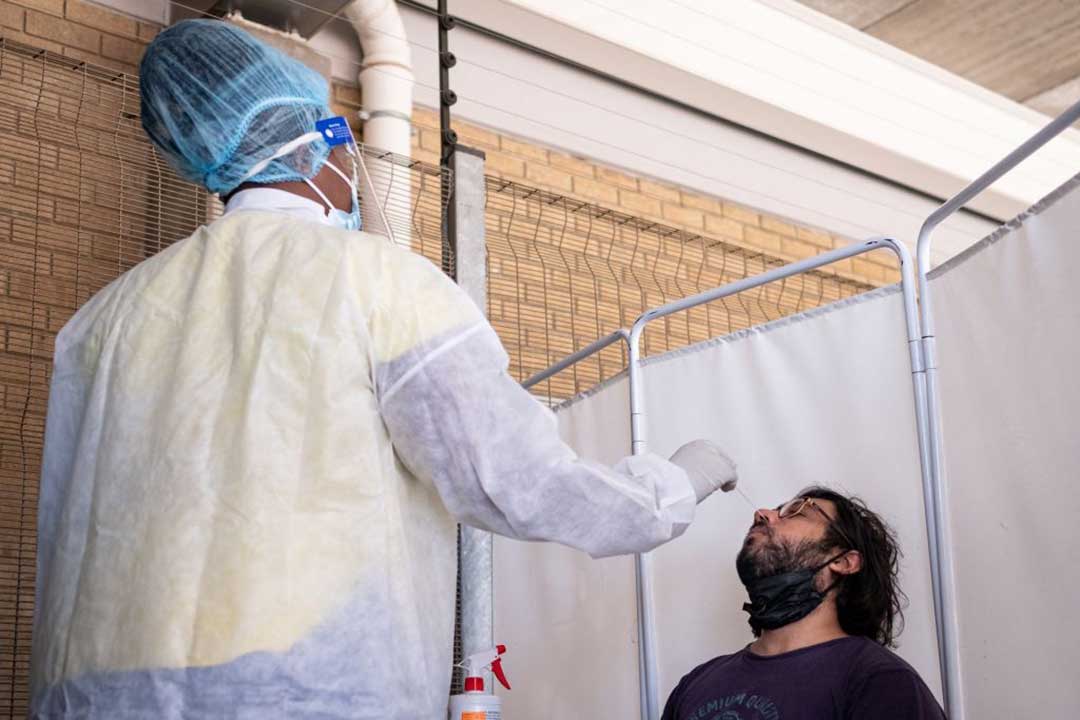Omicron-Driven Fourth Wave Spreads Quickly, Produces Milder Cases So Far
ADF STAFF
The rapidly spreading omicron variant of COVID-19 has reached 13 African countries, but so far it is producing milder infections than earlier variants, according to researchers.
South Africa, which first reported omicron in late November, has felt the largest impact from the variant. Omicron accounts for 90% of all new cases in the country, but severe illness and hospitalizations remain low, possibly due to the high rate of previous infections, according to an analysis by insurer Discovery Health, the country’s largest private insurer.
The report, issued in mid-December, was based on 211,000 people who tested positive for COVID-19 from mid-November to early December.
The COVID-19 tests conducted in that time showed a 32.2% positivity rate, more than six times the rate at which the World Health Organization calls for lockdowns to break transmission. The wave was focused in Gauteng, South Africa’s most populous province.
“The Omicron-driven fourth wave has a significantly steeper trajectory of new infections relative to prior waves,” Discovery Health CEO Dr. Ryan Noach said in the report.
The sudden onset of omicron infections helped drive Africa’s COVID-19 case count from 8.7 million to 9.1 million in less than two weeks. As of the third week of December, 13 African countries, mostly in Southern and West Africa, had recorded the omicron variant, according to the Africa Centres for Disease Control and Prevention.
Omicron is among the most mutated versions of COVID-19 identified since the pandemic began in early 2020. The variant has 50 mutations, more than 30 of them on its spike proteins — the “keys” the virus uses to invade cells where it then replicates and spreads.
Compared to the delta variant, omicron spreads twice as fast but has produced 93% fewer hospitalizations so far, according to Discovery Health and the South Africa Medical Research Council. Omicron is producing about a 10th of the 250 to 300 deaths delta caused each day.
“We are hopeful that the current experience of COVID-19 caused by the Omicron variant — mild disease for the most part — will remain unchanged,” Noach said in the report.
He emphasized that the analysis is based on early data, and conditions could change as the wave progresses.
The rapid spread and low fatality rate mean the omicron wave is likely to peak in about half the eight-week period of the delta wave.
Researchers believe that the difference between omicron and previous waves might reflect the high rate of natural immunity in South Africa’s population. A recent survey of adults in the Gauteng province showed that 72% of them had been infected with COVID-19, according to Professor Shabir Madhi of the University of the Witwatersrand in Johannesburg.
Previous infection creates T-cells, which provide the body with its “memory” of a particular infection and build long-term immunity. That doesn’t mean that previous infections guarantee protection against omicron, however.
Reinfection rates by omicron are about five times higher than those with the delta variant.
Simply put: People who have recovered from previous infections still are at risk of contracting the omicron variant. The more time since they recovered, the greater the risk of reinfection.
Discovery Health found a risk of reinfection ranging from 40% for people who had recovered from the delta variant to 73% for those who had recovered from the original COVID-19 strain.
On December 17, five weeks into South Africa’s omicron wave, Madhi reported on Twitter that the wave had peaked in Gauteng and that infections were trending downward.
Given widespread exposure to previous COVID-19 variants, Gauteng’s experience with omicron might be different from other regions in South Africa and other countries on the continent, however.
Communities with low rates of previous exposure to COVID-19 remain at high risk of severe infection, Professor Ian Sanne of the University of the Witwatersrand told South Africa’s eNCA news.
Hospitals and health care systems need to prepare themselves for another onslaught of COVID-19 cases, Sanne added.
“We have a large pool of people who can still present with overwhelming infection and severe disease,” Sanne said. “We certainly are in for a storm ride at this time.”


Comments are closed.